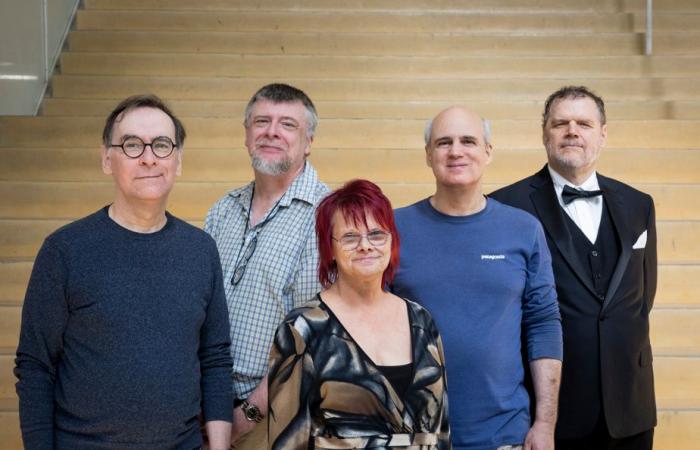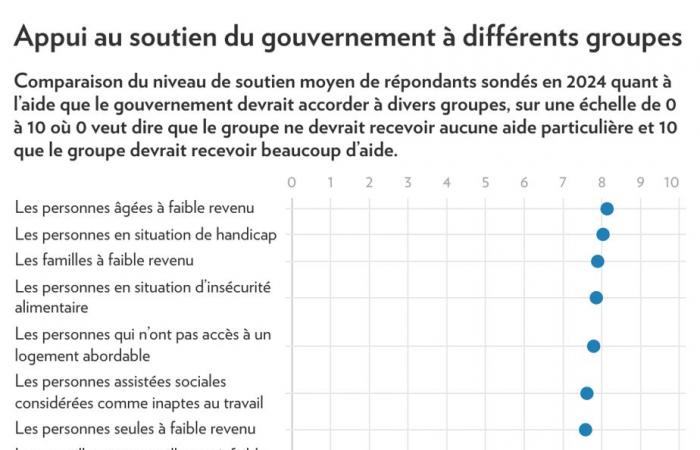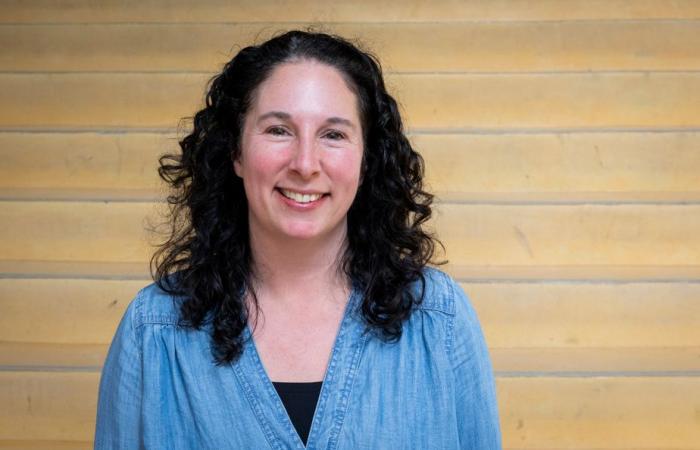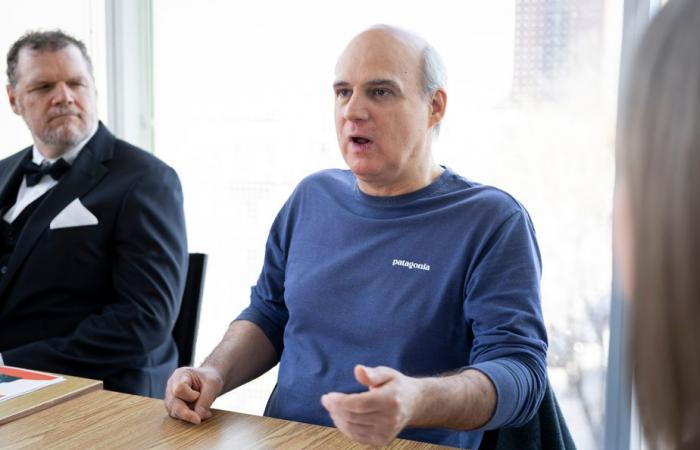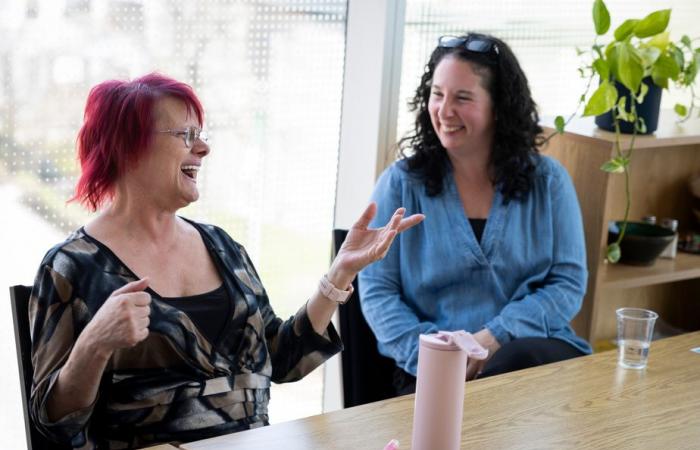Lazy. Profiteers. Cursed BS … People who receive social assistance services are often called upon all names. Unfortunately, this is nothing anecdotal.
Posted at 5:00 a.m.
“In Quebec, this is the most stigmatized social group,” said community psychologist Janie Houle, holder of the research chair on the reduction of social inequalities in health (RISS) of UQAM.
There are only politicians who have an appreciation rating as low as social assisted people. When, for the purposes of their study, pollsters designate these same people as “BS”, their score drops even more. This shows that the words we use to present people influence our perception.
List of social groups in order of appreciation
1. Quebecers
2. Canadians
3. Gais and lesbians
4. People on unemployment insurance
5. Immigrants
6. Feminists
7. Social assisted people
8. People on social well-being (“BS”)
9. Politicians in general
Source: List drawn up from the Landry, N., and al., (2021). “Media representations and public opinion of social assistance in Quebec”. New social practices32(1), 84–112.
“It’s intolerable, these prejudices! “, Ton Janie Houle. Not only because they carry hurtful and humiliating myths for those concerned, but also because it harms the adoption of better public policies. Citizens who perceive negative social assistant people may be less inclined to support policies that are fair for them.
“We are convinced that the prejudices of the population contribute to maintaining the status quo compared to social assistance policies,” said the professor.
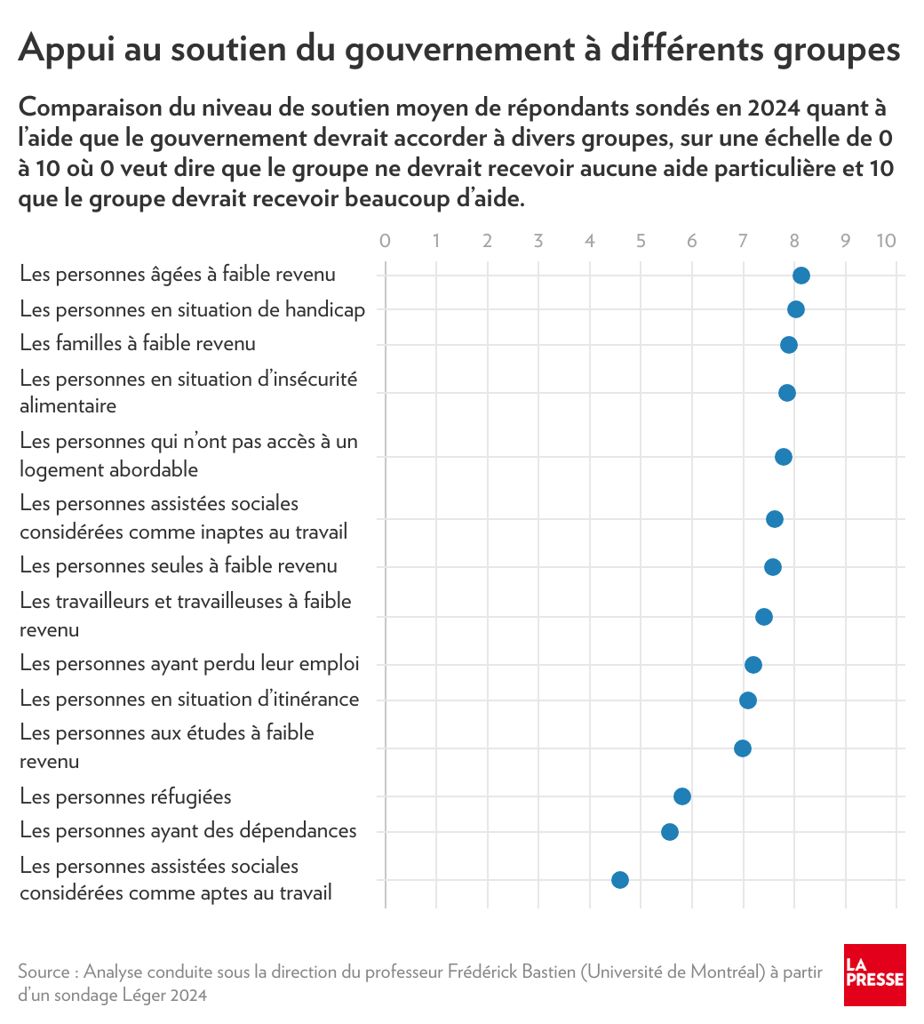
To overcome these myths, the Chair Riss team will officially launch on May 5 a remarkable project of living books as part of a workshop entitled “Towards a fairer society”.
The antidote antiprejugged proposed by the Riss chair is a priori very simple: sitting and interacting with the first concerned. This is a solution that has proven itself. Decades of research have shown that what is called “contact strategy” is one of the best remedies against prejudices.
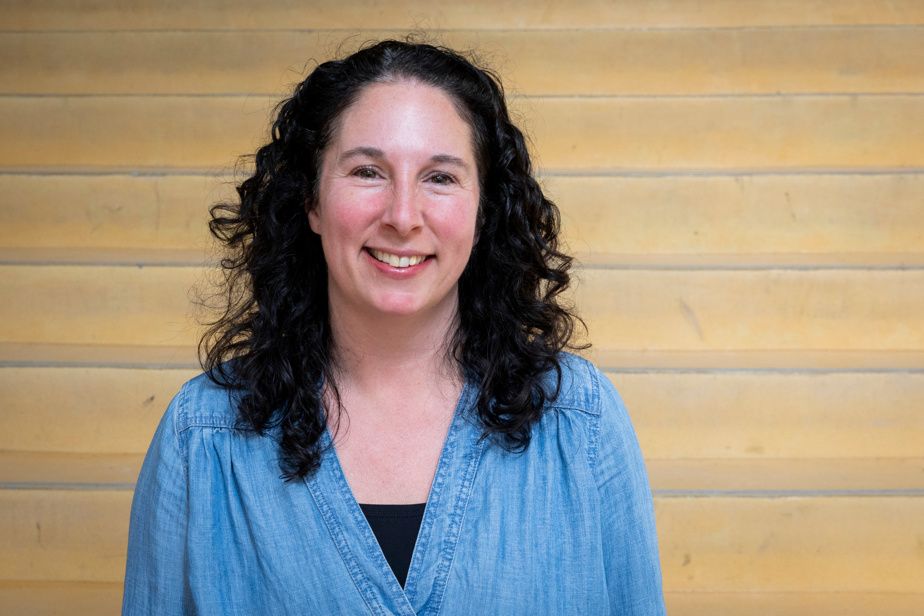
Photo Marco Campanozzi, the presses
Janie Houle, holder of the Research Chair on the Reduction of Social Health Inequalities of UQAM
When people have the chance to meet from human to humans, equal, a person who lives a condition that is marginalized, if contact has a certain duration in time, it deconstructs prejudices.
Janie Houle, holder of the Research Chair on the Reduction of Social Health Inequalities of UQAM
As part of this project, five people who receive financial assistance from the last resort have received training in order to testify as living books. They were then invited to present a chapter of their lives in front of a group of participants.
The feasibility study has shown that the remedy is working. So that the government has decided to include it in its fourth plan to combat poverty in order to deploy it everywhere in the province. The objective is to train nearly 70 living books in all regions of Quebec.
Pierre Cardinal, even researcher member of the Governance Committee of the Riss Chair, was a pillar of this project, which is inspired by the Danish concept of living libraries. Suffering from a generalized anxiety disorder, he heard for the first time of this approach, already used to combat mental health prejudices, at the university institute in mental health.
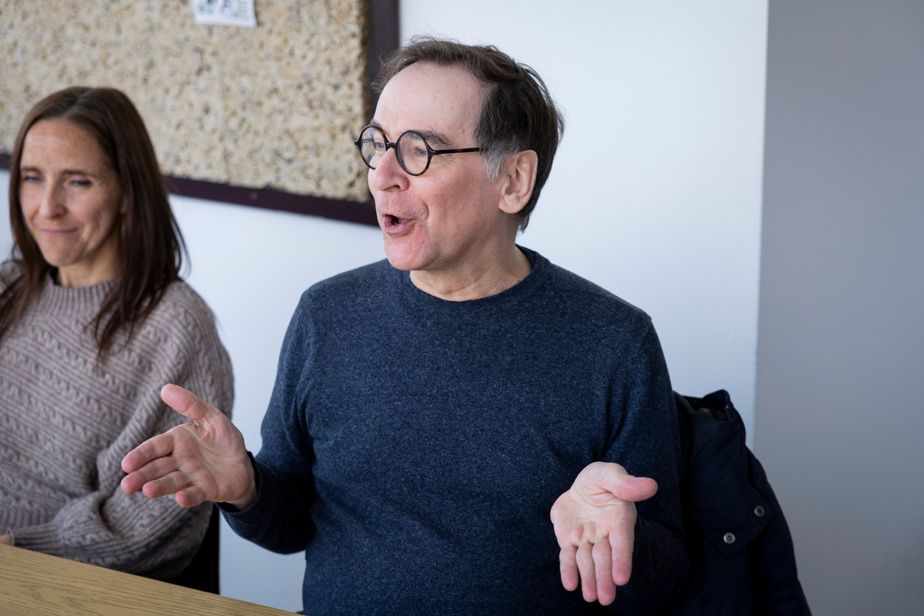
Photo Marco Campanozzi, the presses
Pierre Cardinal
“I said to myself: I would never be able to do that. I’m far too shy. With my social phobia and all that, I will not succeed… ”, says the 65 -year -old man.
Finally, he started. And he loved it. “It was a love at first sight!” »»
Realize that it can happen to everyone
For lasting anti -freshered benefits, stitching a jasette with a single person belonging to a stigmatized group is not enough. Participants must rather be exposed to a diversity of testimonies at various times.
For this project, we set up a workshop of two two -hour sessions each. The first relates to the causes that can lead a person to ask for the help of last resort. The second addresses the consequences that these people are experiencing on a daily basis and changes in public policies that would improve their living conditions.
The session also includes a budget exercise where participants are called upon to see very concretely how they could live with the sums that social assistance providers receive.
By exchanging with at least three living books per workshop, the participants see that different routes force people to turn to the help of the last resort. “They also see that it can happen to everyone to live with a health problem that prevents you from going to work,” explains Janie Houle.
If each story is unique, the obstacles linked to mental health problems are predominant for many of them.
Although the testimonies can be overwhelming, the workshop is not intended to be a depressing lecture on poverty, underlines Pierre Cardinal. During the training given to future living books, he said to them: Have fun! “Yes, we tell difficult things about our life that has to do with poverty. But it is not a psychodrama. We don’t want to make people cry. In the exchange, there is a pleasure to tell yourself and do it for a good cause. »»
You should know that people in poverty are full partners of the Riss Chair team, much as in the Montreal model of the patient partnership which is increasingly recommended in the health and social services industry. We recognize their status as expert people with experience with unique knowledge which is useful both in the development of public policies to reduce inequalities and to carrying out research on this subject.

Photo Marco Campanozzi, the presses
Frédéric Mailhot-Houde
This recognition is worth gold for these experienced experts accustomed to being invisible in public debates. “This project was for me a source of continual development. It was extraordinary. We were well received everywhere, ”says Frédéric Mailhot-Houde, 58, who kept preciously the words of appreciation that participants have left him.
“In the media, in the news, you never hear about poverty. Sometimes it’s a little sentence and that’s it. At one point, it was a lot on people in homelessness, “says Line Bélanger, 63, who has herself already found homeless.
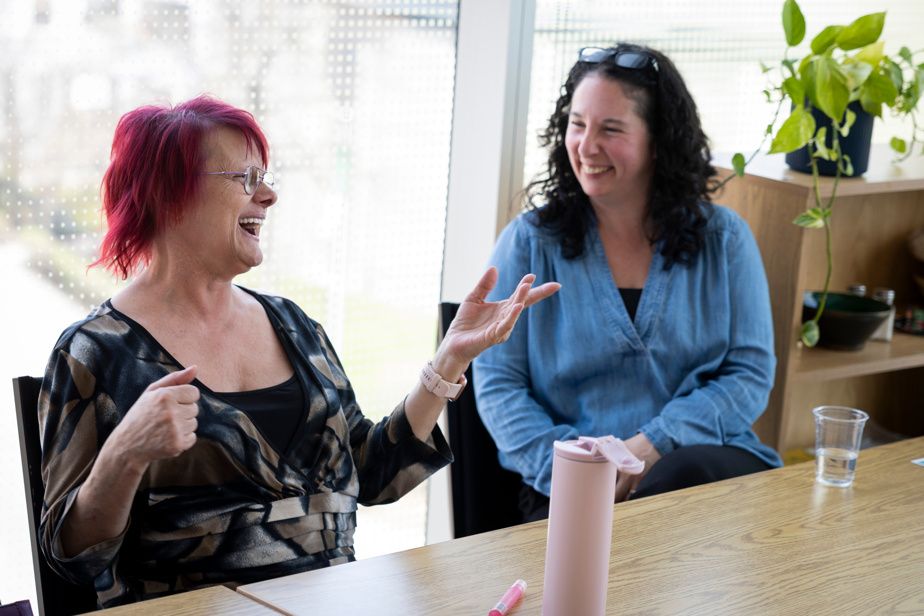
Photo Marco Campanozzi, the presses
Line Bélanger chatting with community psychologist Janie Houle
There is no help, it does not advance. What to do with what! And that’s the goal of this project! That the world listens and knows what is really.
Line Bélanger
Who would have an interest in discovering the stories of these living books? Anyone who wishes to open an inclusive discussion space to better understand the reality of these people.
Who does it benefit from? Ultimately, to everyone. Because by changing the gaze that we have on social assisted people, we understand that the deep causes of inequalities are structural and political and non -individual. Hence the importance of throwing our catalog of prejudices to bet on fairer public policies. The companies that understood it win on the change, recalls Janie Houle. They are doing better, both in terms of health, the economy and social cohesion.
“Everyone is gaining in living in a fair, even the richest society. »»Consult the workshop website “Towards a fairer company”
Corrigendum
An earlier version of this text attributed to another source the data of the graph “support for government support to different groups”. Our apologies.

